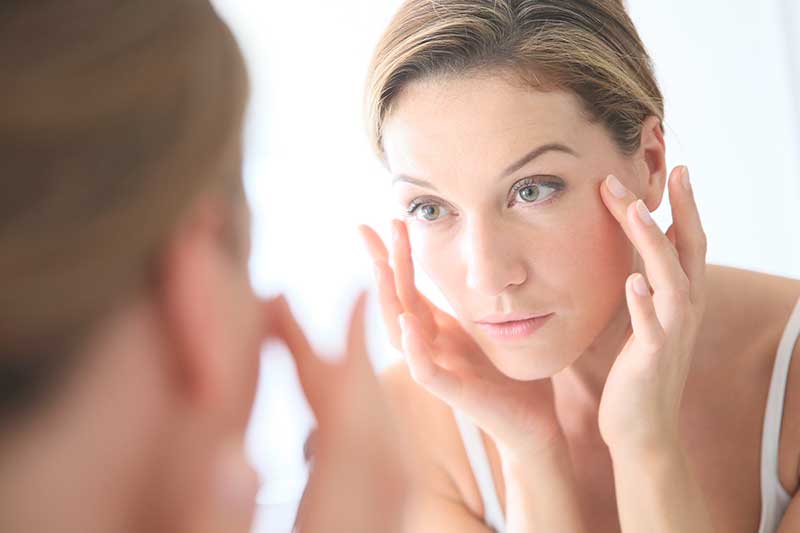
Dermatitis, what is it and how to combat it?
Red, inflamed, itchy, dry skin is very typical with dermatitis, a disease that is becoming increasingly common in both adults and children alike.
What is it?
Dermatitis is inflammation of the skin, which usually is accompanied by itching and redness, but is not contagious and can be cured with the proper treatment.
Although the term dermatitis can be used for many different skin rashes or irritations, these are the three most common types:
Types of dermatitis:
Atopic dermatitis: red, itchy patches, this is hereditary and usually starts during childhood.
Contact dermatitis: occurs through the contact with certain substances that produce allergies or irritation on the skin.
Seborrheic dermatitis: occurs in the oiliest parts of the skin, like the face, chest and back.
Symptoms
The main symptoms of dermatitis are:
- Dry skin
- Rough skin
- Scaly skin
- Red skin
- Itchiness
- Breakouts
- Rashes
- Inflammation of the eyes, face or genital areas (in severe cases)
- Affected areas
- Inside the elbows
- Back of the knees
- Face
- Neck
- Hands
- Feet
- Contact area (contact dermatitis)
- Symptoms vary depending on the cause of the dermatitis.
Causes
The causes of atopic dermatitis are mostly genetic. The causes of contact dermatitis vary widely. The factors that can aggravate dermatitis include:
- Allergies to pollen, mould, mites and animals. Colds and dry air during the winter months.
- Cold and flu
- Weak immune system
- Contact with harsh materials and irritants
- Contact with chemicals
- Dry skin
- Stress
- Emotional imbalance
- Drying out the skin by over-washing or using very hot water.
- Sudden changes in temperature
- Perfumes and lotions
- Soaps
Prevention
To prevent the onset of dermatitis, you can take various precautions:
- Take short showers: between 5 and 10 minute showers are recommended, using warm, not hot water.
- Use a gentle soap for your skin with a neutral pH: choose gentle and preferably fragrance free soaps. Some soaps can dry
- out your skin or cause allergic reactions.
- Dry yourself carefully: after the shower, make sure to dry your skin well before getting dressed to prevent fungus from
- growing on your clothes.
- Moisturize your skin apply a suitable cream or essential oil to your skin after the bath, when your skin is still wet.
- Wear comfortable clothes: avoid materials that can cause itching or irritation.
- Wash all new clothes before wearing them.
- Use a gentle soap to wash your clothes.
- Cut your nails: ideally you won’t scratch your skin, but it’s better to have short nails to avoid damaging your skin if you do.
- Use sunscreen every day.
- Avoid contact with substances that irritate the skin, if you must, use gloves and wear protection for your body.
Treatments
Treatment for dermatitis depends on the type of dermatitis, the severity of symptoms and its cause. In general, skin irritations or skin rashes disappear from the skin after a maximum of three weeks.
In any case, it is recommended to consult your doctor as soon as possible to obtain a diagnosis and proper treatment.
Generally, treatment includes:
Medication: prescription medication, sometimes corticosteroids, antibiotics or antihistamines.
Creams: with corticosteroids to reduce itching and inflammation
Phototherapy: exposure of the affected skin to controlled quantities of light
Creams or lotions for dry skin

Complementary Treatments
There is a huge variety of treatments that can help reduce dermatitis symptoms:
- Baths and masks with oats: oats help soothe inflammation, itching and skin rashes.
- Diluted bleach baths: very diluted bleach (one drop per liter of water) can help improve skin irritations
- Therapies for stress relief: meditation and stress reduction techniques help reduce anxiety associated with atopy.
- Establish your own skincare routine
- Maintain a balanced diet
- Keep your skin hydrated
- Would like to know more about skincare? We are here to guide you and help you. Receive more information about looking after your health 🙂
